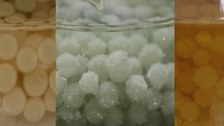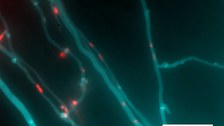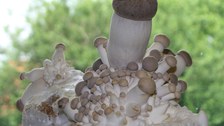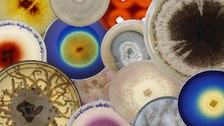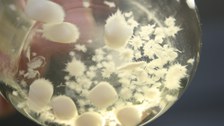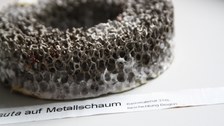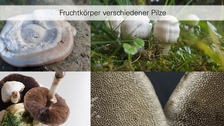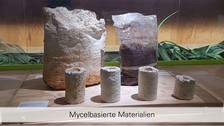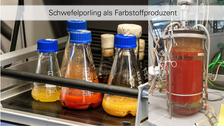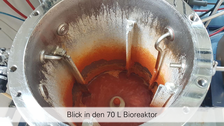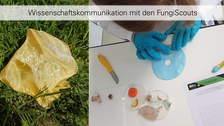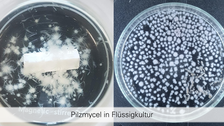Research Group Enzyme Technology
The research group "Enzyme Technology" deals with different enzymes – varied biological catalysts which are essential for life – and pursues the complete workflow beginning with screening of various enzyme producers via enzyme production, purification and characterization up to the development of applications. Of particular importance are basidiomycetes (Ger.: Ständerpilze). Basidiomycetes produce extraordinary extracellular enzymes, many of which have biotechnological potential. In nature, these fungi use their enzymes mainly to degrade organic substances and thus to retain nutrients. However, the same degradation mechanisms can also be used in white biotechnology. For example, cellulases and xylanases are able to degrade lignocellulose materials – mostly biogenic residue materials from other industries - into monomers (sugars) which can in turn be used as raw materials for various biological or chemical conversions into high value chemicals. Other important enzymes are the laccases involved in nature in the degradation of lignin. But laccases are also capable to degrade structurally similar xenobiotics, such as toxins, dyes, hormones and so on. This opens up a lot of applications, e.g. wastewater treatment, soil remediation, textile finishing or use in cosmetics. The enzymes are mainly produced using solid state fermentation – a special type of fermentation which conforms most closely to the natural habitat of our fungi. The comprehensive monitoring and modeling of these complex processes are another main focus of our research group, as well as the continuous development of suitable immobilization techniques, highly sensitive biosensors, various characterization methods including the use of special microfluidics and the production of other interesting fungal metabolites, such as flavors or dyes. The amazing variety of these fungi enables varied and interdisciplinary work fields, which are reflected in our research group. Since 2018, mycelium-based composites (MBC) are also being investigated and developed as biodegradable alternatives to petroleum-based materials and components. The unbelievable diversity in the kingdom of fungi allows diversified and interdisciplinary fields of work, which are reflected in our research group.
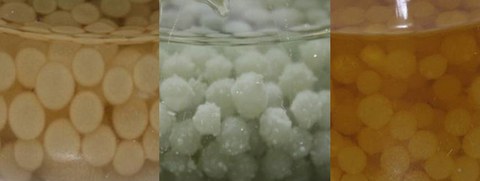
© Steudler
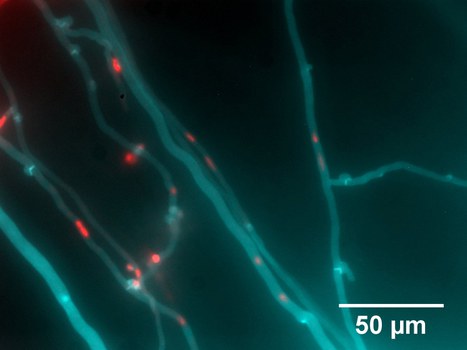
© Steudler
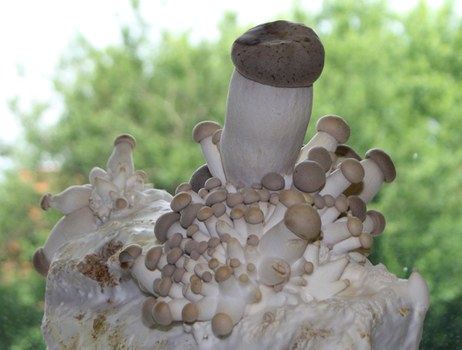
© Werner
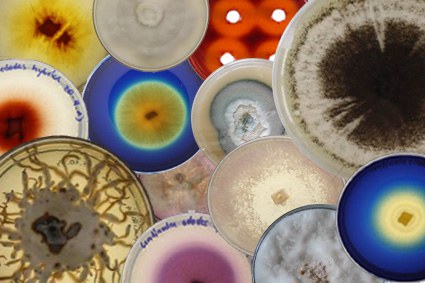
© Steudler
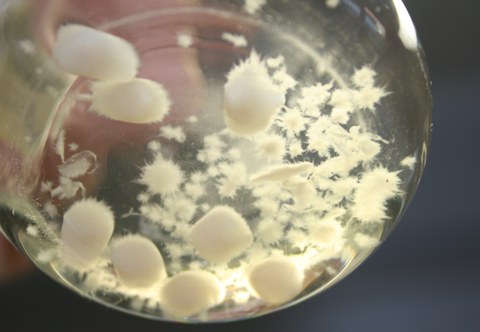
© Steudler
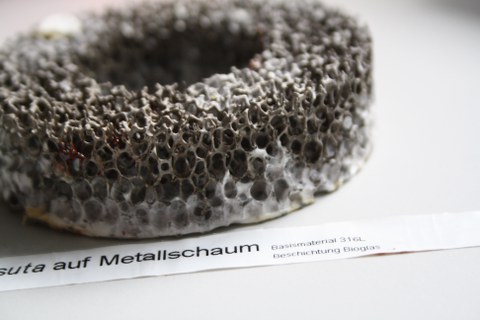
© Werner
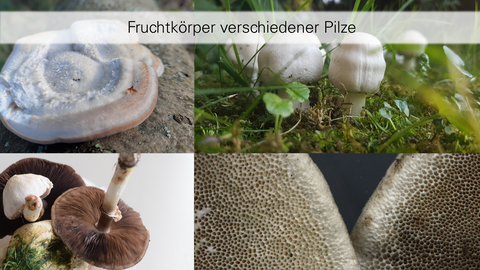
© AG Enzymtechnik
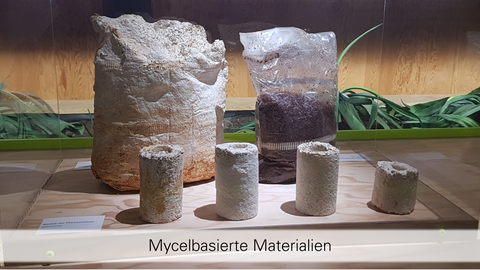
© AG Enzymtechnik
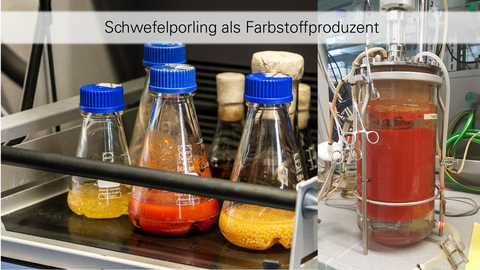
© AG Enzymtechnik
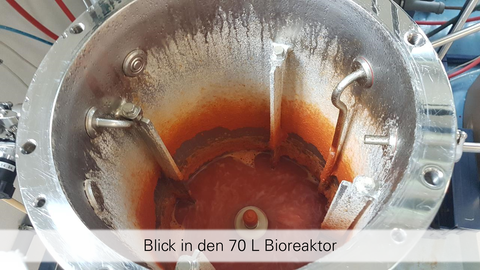
© AG Enzymtechnik
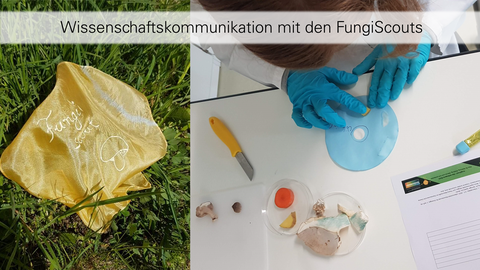
© AG Enzymtechnik
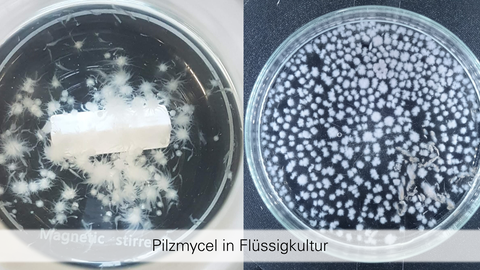
© AG Enzymtechnik
Projects of the Enzyme Technology research group include:
- MycoMatrix - Sustainable building system made from mushroom mycelium
- FungiScout: The Hidden Kingdom: Discover mushrooms for food, clothing, warmth and light
- FungiColor - Natural dyes from basidiomycota fungi
- CrossCat-Symbiosis of bio- & chemo-catalysts for the sustainable conversion of hemicelluloses
- Development of technologies and processes for cultivation of dye producing fungi and for recovery of natural dye
- Symbiosis of catalysis and biotechnology for sustainable utilization of hemicelluloses in biorefineries
Research Areas:
- Solid fermentation including monitoring
- Enzyme production, especially laccases
- Colorant production
- Enzyme characterization
- Biosensorics
- Enzyme immobilization
- Mycel-based materials
With the following project emphases:
- Analyses for the cultivation and quantification of basidiomycetes and their enzymes
- Development of technologies and processes for the cultivation of dye-producing fungi and for the production of natural dyes
- Development of technologies and processes for the production of environmentally friendly fungus-based materials
- Remediation of soil and water using enzymes and basidiomycetes
Research group head:
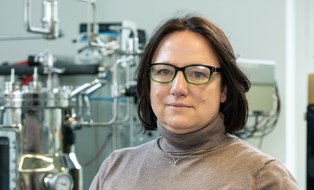 © TUD
© TUD
Project researcher
NameDr.-Ing. Anett Werner
Head of enzyme technology
Send encrypted email via the SecureMail portal (for TUD external users only).
